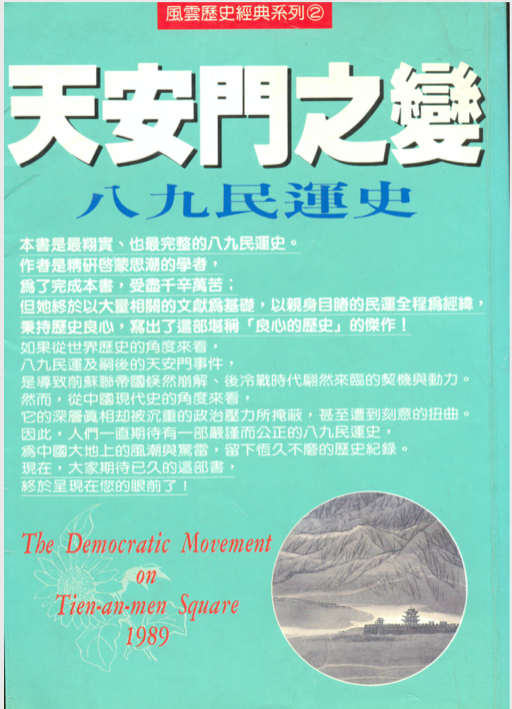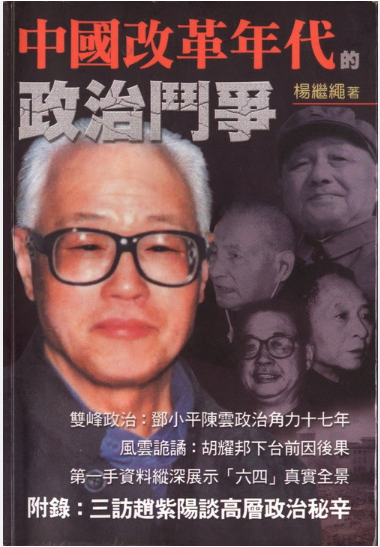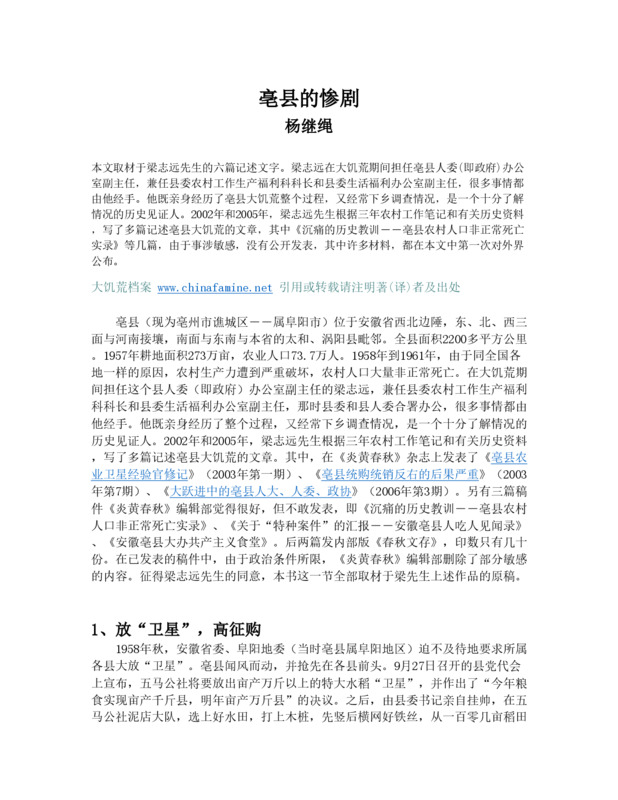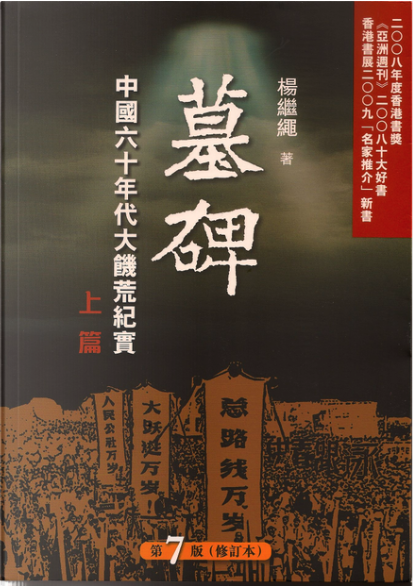Explore the collection
Showing 6 items in the collection
6 items
Book
History of the 1989 Democracy Movement
This 10-volume book of 1.3 million words was written by Chen Xiaoya, a former associate researcher at the Institute of Political Science of the Chinese Academy of Social Sciences. The first edition was written in April 1994 and published in Taiwan in 1996, but with just over 200,000 words. Later, Chen Xiaoya revised the book several times to increase its content: starting from 1976, the year of Mao Zedong's death, and covering Hu Yaobang's political career as well as the background of the June Fourth Incident and also adding the contents of the memoirs of the parties involved in the June Fourth Incident. The number of words was increased to 1,360,000 words in 2016 when the book was published. The book was reprinted in 2019.
Purchase link:https://www.amazon.com/%E3%80%8A%E5%85%AB%E4%B9%9D%E6%B0%91%E9%81%8B%E5%8F%B2%E3%80%8B%E3%80%8A%E5%85%AB%E4%B9%9D%E6%B0%91%E8%BF%90%E5%8F%B2%E3%80%8B-%E7%AC%AC%E5%85%AB%E5%8D%B7-DEMOCRACY-MOVEMENT-Traditional-ebook/dp/B07VN848V8
Book
Political Struggles in China's Reform Era
The author of this book, Yang Jisheng, is a veteran journalist with 35 years of experience in journalism at Xinhua News Agency, China's official news organization. He knows a great deal about the ups and downs of Chinese politics after the end of the Cultural Revolution as well as the intricate power struggles at the top and has a lot of first-hand information. He personally interviewed Zhao Ziyang, Zhu Houze, Li Rui, Ren Zhongyi, An Zhiwen, Tian Jiyun, and other important people. “Political Struggles in China's Reform Era”, first published in Hong Kong in November 2004, was the subject of a series of crackdowns by the authorities against Yang Jisheng. It was republished in 2010 by Hong Kong's Cosmo Books.
Article
Special Feature|Famine and County (3): Hao County's Tragedy
This article is taken from six accounts by Mr. Liang Zhiyuan. Mr. Liang Zhiyuan was the deputy director of the Bo County People's Committee (i.e., the government) office during the Great Famine. He also served as the head of the Production and Welfare Section of the County Party Committee's Rural Work Department and the deputy director of the County Party Committee's Living and Welfare Office, where he was responsible for a lot of things. In 2002 and 2005, based on three years of rural work notes and relevant historical information, Mr. Liang Zhiyuan wrote a number of articles describing the Bo County famine, including "A Painful Lesson in History - The Unnatural Deaths of the Rural Population in Bo County." and several other articles. Due to the sensitivity of the matter, these have not been published publicly, and many of these materials are released to the outside world for the first time in this article.
Book
Tibet in Agony: Lhasa 1959
Traveling Chinese history scholar Li Jianglin began working on the Tibet issue in 2004. She has traveled to India every year in search of Tibetan refugees, visited 14 Tibetan refugee settlements in India and Nepal, contacted more than 200 exiled Tibetans from the three regions of Tibet, and personally interviewed the Dalai Lama in Dharamsala, the seat of the Tibetan government-in-exile, in 2008. In 2010, Li Jianglin completed her book <i>Lhasa 1959!</i> by drawing on interviews, information searches, and rare historical photographs provided by the Tibetan government in exile, in the hope of reconstructing the little-known history of the Dalai Lama's departure from Tibet in 1959. The book was published by Taiwan's Lianjing Publishing House in 2010 and reprinted in 2016.
Book
Tombstone: The Great Chinese Famine, 1958-1962
The Great Famine in China in the 1960s was a rare famine in human history. From 1958 to 1962, according to incomplete statistics, 36 million people died of starvation in China; due to starvation the birthrate is estimated to have dropped to around 40 million. The number of people who died of starvation and the lowered birthrate due to starvation totaled more than 70 million, which is not only the largest number of deaths among all the disasters that occurred in China's history, but also the most painful and unprecedented tragedy in the history of mankind today. Was this a natural disaster or a man-made disaster? Officials deliberately covered it up and tried to minimize it, forbid any public discussion or expression about it. Yang Jisheng, a senior reporter of Xinhua News Agency, personally experienced the death of his father in the famine. Since then, he has devoted his heart and soul to this story. He has spent several years on it, running through a dozen or so provinces where the disaster was the most serious, and personally checking countless archives and records, both public and secret. He has interviewed the people involved and checked the evidence over and over again. Thus, he felt confident that he could, with the heart of the historical pen and the conscience of the news reporter, make a number of drafts, and truly recapture this tragic history of the human race and analyze the causes of this tragedy with a large amount of facts and data. With a wealth of facts and figures, he identifies the main cause of the famine as the totalitarian system. This is a book carries the collective memory of many ordinary Chinese people, and is a tombstone for the 36 million victims.
This book is published by Tiandi Books in Hong Kong. The English version of <i>Tombstone: The Great Chinese Famine, 1958-1962 </i> was translated by American author Stacy Mosher and can be purchased <a href= "https://www.amazon.com/Tombstone-Great-Chinese-Famine-1958-1962/dp/0374533997">here</a>.
Book
When the Iron Bird Flies: China's Secret War in Tibet
Around the eighth century A.D., the founder of Tibetan Buddhism, Guru Rinpoche, prophesied, "When the iron bird flies in the sky and the iron horse runs on the earth, the Tibetans will be dispersed all over the world like ants, and the Buddha's Dharma will be spread into the land of the red people." More than 1,000 years later, in the middle of the 20th century, the Chinese Communist Party drove the "iron bird" across the sky and rode the "iron horse" across the plateau. The Tibetans courageously rose up to resist resulting in with countless deaths countless deaths. Those who survived were forced to leave their homeland and live in exile in India, drifting around the world. Thus, the prophecy came true. From a military point of view, the Tibetan war in Tibet was a victory, but it received only minimal publicity. The official version of the Party's history is either vague or evasive about the bloody massacre during the entry into Tibet, attempting to cover it up by "suppressing armed rebellion" and "purging counter-revolutionaries". More than sixty years later, this war has yet to be demystified. Li Jianglin, an independent scholar, was moved by the tragedy of the war and the plight of the Tibetans, and endeavored to restore the historical facts. Since 2004, she has devoted herself to research, visiting hundreds of Tibetan elders, searching for tens of thousands of historical materials, collecting military archives, and comparing them with the official published materials of the Communist Party of China, in order to present memories of past, little by little.





